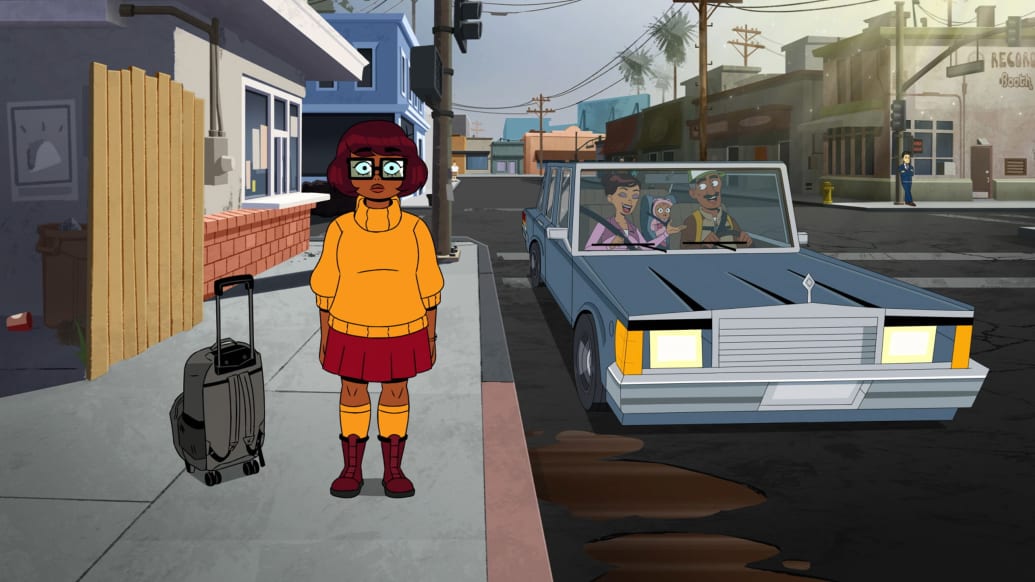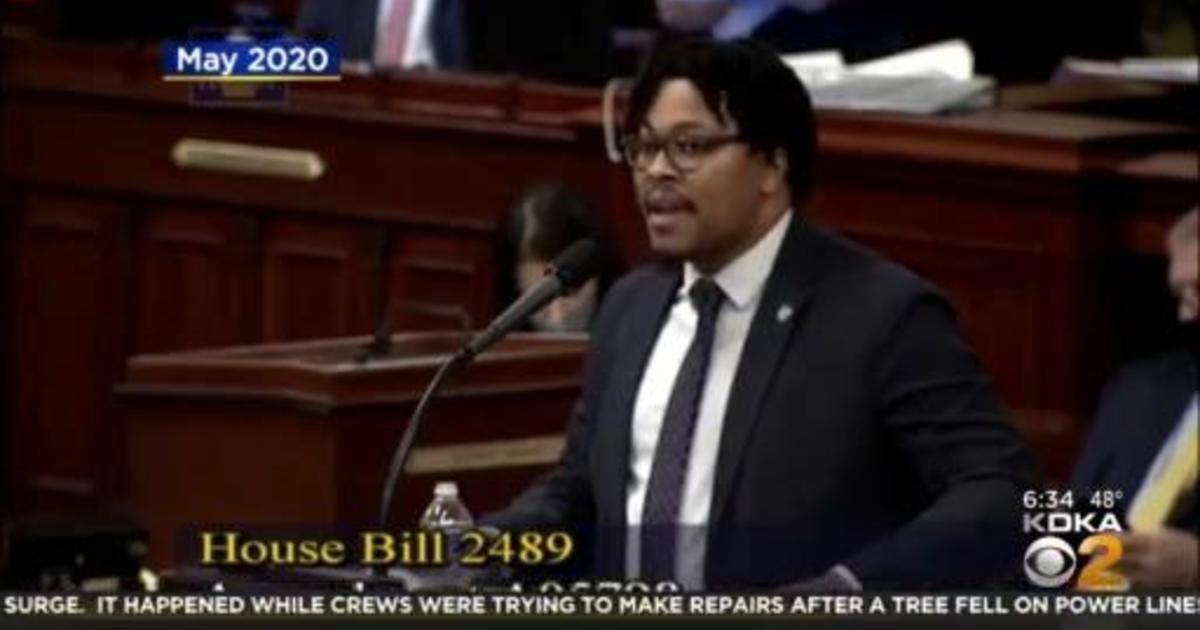A wise woman once said, “Velma-behaved women seldom make history.” Wait, that’s wrong. “Well-behaved women seldom make Jinkies”? No, that doesn’t seem quite right either. “Vel-behaved women seldom lose their glasses”? Whatever the phrase might be, it’s never been more true than for a certain member of Mystery Inc. The precocious group of supernatural mystery solvers comprised of Shaggy, Daphne, Fred, Velma, and their beloved dog Scooby-Doo have been getting into trouble for the better part of the last half-century—or, as some might classify it, “meddling.”
Since 1969, the Mystery Inc. gang has tasked themselves with unmasking devious criminals dressed as ghostly specters. The Scooby-Doo franchise has spawned countless television and film iterations over the last 54 years, but rarely has it changed its core focus. The franchise has always been the most concerned with its two biggest stars, Scooby and Shaggy, and their three white friends who follow them around, yelling at them for eating comically large sandwiches when there are mysteries afoot.
So, when Velma Dinkley’s voiceover introduces her character to viewers in the latest franchise iteration, Velma—streaming Jan. 12 on HBO Max—any true Scooby fan should rejoice. Finally, someone had the brilliant idea to push for a series focusing on Mystery Inc.’s real ringleader, the smartest and most memeable of the entire bunch. No disrespect to Shaggy and Scooby, but there are only so many “Ruh-Roh”s and Scooby Snack jokes one can take before an eyelid goes into perma-twitch.
While we’re all stuck with prequel-itis these days, Velma manages to transcend the inherent eye-rolls that come with a reboot, delivering a fresh, winkingly silly take on Mystery Inc. The show is fast-paced and ridiculous; even when it dips with a joke that would’ve been funnier five years ago, there’s another right around the corner. Velma is the perfect example of how beloved franchises can—and should—adapt through time.
“My name is Velma Dinkley, and this is my origin story,” says the voice of our favorite bespectacled heroine, opening the premiere episode. As if anticipating the groans of fanboys clinging onto their favorite childhood intellectual property, Velma quickly skewers how pop culture typically introduces spinoffs, prequels, and universe expansions. “If [origin stories] are about girls, it’s usually, like, “What made this hot chick go crazy?’” (She’s got a Pearl-sized point there!) “This is my story, told my way. And it starts with a murder, bitch.”
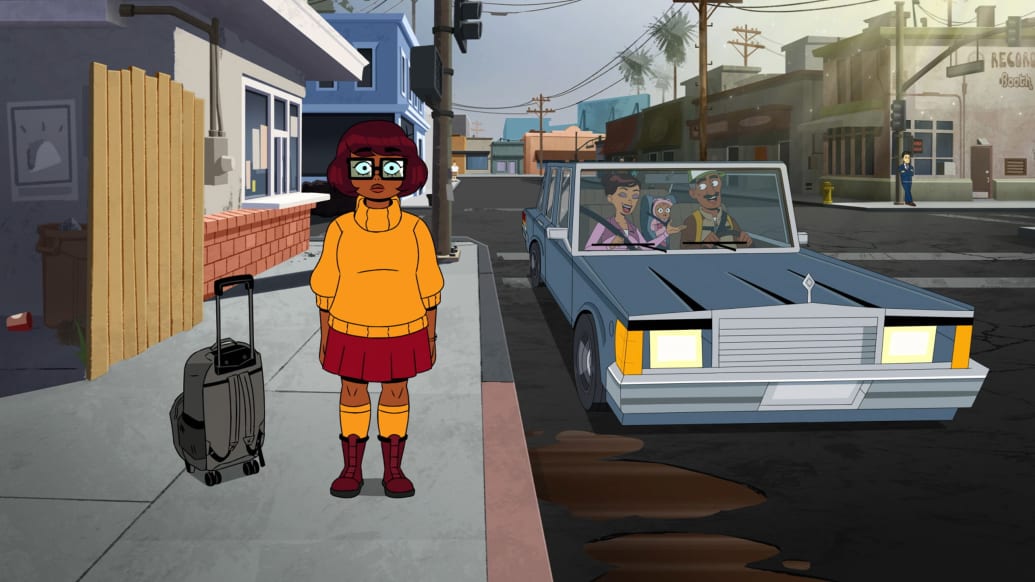
If it wasn’t immediately clear from Velma doling out expletives, this is not your grandpa’s Scooby-Doo show. Or your dad’s, or your brother’s, or yours. Velma is an adult-oriented spinoff, capitalizing on the popularity of HBO Max’s ultra-violent, uber-crass Harley Quinn. The series also recasts its central crew with some much-needed diversity. Mindy Kaling voices Velma, now the daughter of two Indian parents, one of whom has gone missing. And Shaggy (who now goes by his birth name, Norville), is a biracial newspaper nerd voiced by Sam Richardson.
Velma has hung up her turtleneck when it comes to solving mysteries. Her mother, Diya, went missing trying to do the exact same thing years before, and Velma is now haunted by paralyzing hallucinations every time she so much as thinks about a clue. But the murder of one of the hottest girls at Crystal Cove High School changes all that, and Velma’s curious nature is tempted once again. Besides, it’s not like the town’s bumbling police detectives (an astoundingly funny voice pairing of Wanda Sykes and Jane Lynch)—who also happen to be Daphne’s (Constance Wu) adopted moms—have proven themselves the most crack gumshoes since Diya’s disappearance.
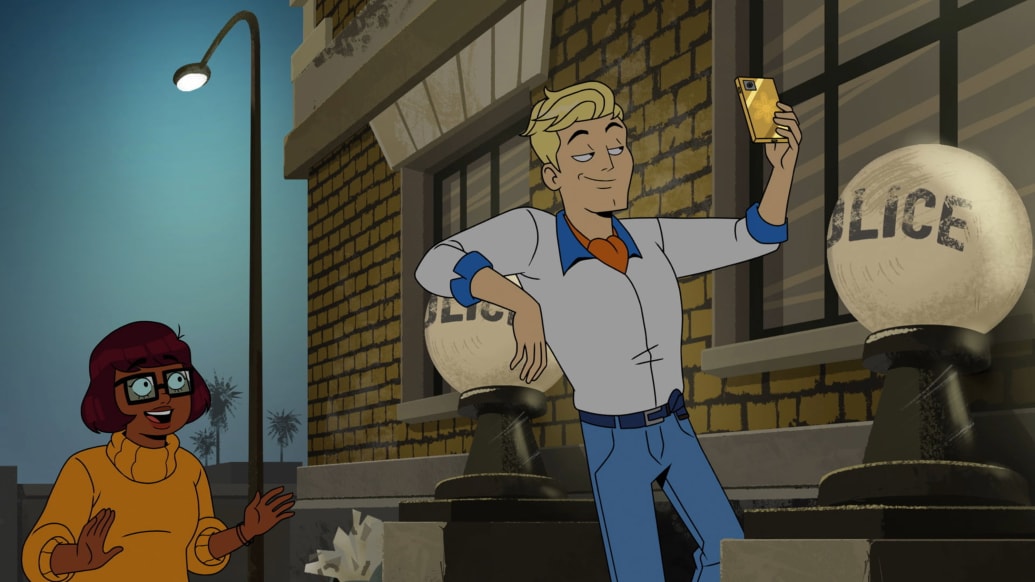
In a town like Crystal Cove, the murder of a busty mega-babe is front-page news. It could mean that all of the city’s hottest residents are in danger, causing Fred (Glenn Howerton) to worry about his beloved Daphne’s safety. The serial murders of Instagram-perfect co-eds are the catalyst for Velma’s funniest running joke, reducing its titular character to an absolute dumpster of a woman who has to wade through a sea of sexpots to be heard. These gags double as cutting jabs at the franchise’s history, which more often than not reduced Velma to a homely, sexless brainiac in a shapeless sweater as a foil to Daphne’s curvy figure and bombshell red locks.
As the star of her own story, Velma finally gets to pull rank. She’s got Shaggy obsessed with her, and Fred even looks at her with heart eyes after she tricks him into reading The Feminine Mystique (a book he believes will be about whether Jennifer Lawrence or Rebecca Romijn was the hotter X-Men mutant). But Velma is really interested in her childhood best friend, Daphne, who she became estranged from once Daphne got hot in high school. Yes, after hinting at it across two seasons of Scooby-Doo: Mystery Incorporated and giving Velma a woman to crush on in 2022’s Trick or Treat Scooby-Doo!, Velma finally gets to be the queer icon that legions of fans have assumed her to be for decades.
Velma is so surprisingly jam-packed with quips and small story details that if you look away for too long, you’ll surely miss something. Some punchlines completely sneak up on you, like Velma asserting, “The only other person who’s ever found me irreplaceable is the captain of my tug-of-war team.” Two episodes will air per week for five straight weeks, but the season works best as a binge, allowing viewers to admire all of its eccentricities and humor within the massively expansive Scooby-Doo franchise—not to mention its dazzling animation style. Other Scooby series have had more success with a weekly format, as their central mysteries were far more tense and engaging, but in Velma, the show’s overarching puzzle takes a backseat to its comedic gags.
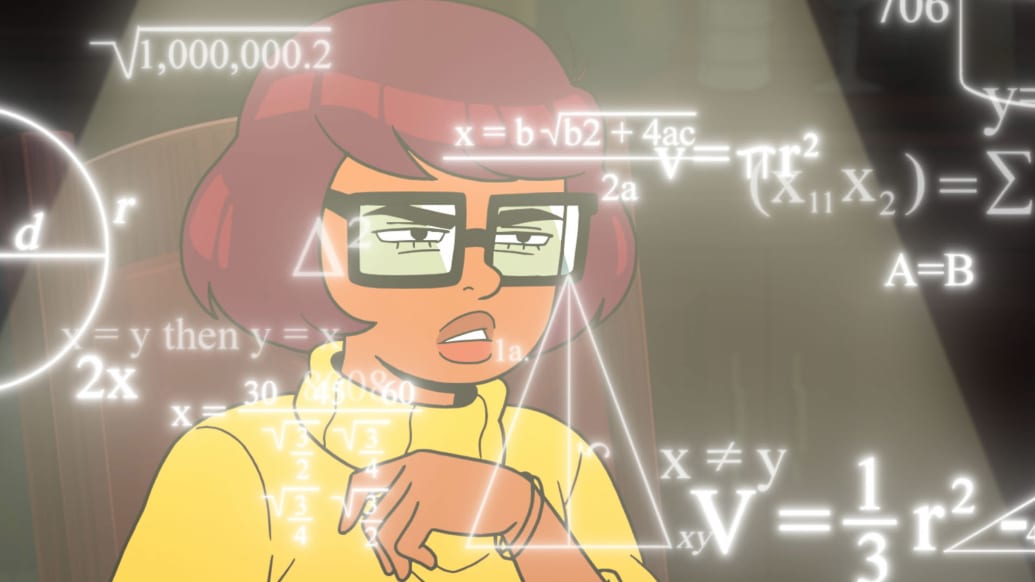
Velma never goes the full Archer route of adult animation, and mostly refrains from using the word “fuck,” lest kids get ahold of the remote. But the series’ writers find clever (if inanely goofy) ways to work around those constraints, like in one episode that takes place at Crystal Cove’s Fog King Festival. Get it? Fog King? Keep going.
Velma certainly won’t be for everyone, and those already averse to Mindy Kaling’s comedy stylings won’t find anything particularly different here than in The Sex Lives of College Girls or The Mindy Project, which Velma’s co-creator and primary writer Charlie Grandy also worked on. It’s also not the strongest reimagining in the Scooby franchise, which still belongs to Mystery Incorporated’s deft balance of genuinely creepy referential horror and whip-smart plotting.
But more than anything, Velma is proof of the possibilities that can be excavated from one of the most popular franchises of all time. Scooby-Doo has always focused on a core group of exceedingly strong central characters, and Velma is the best proof yet that the titular dog himself doesn’t need to be present for a good mystery. Now that we’ve got our glasses on straight, we can do what we should’ve been doing all along: Focusing on the brains of the operation.
Sign up for our See Skip newsletter here to find out which new shows and movies are worth watching, and which aren’t.

